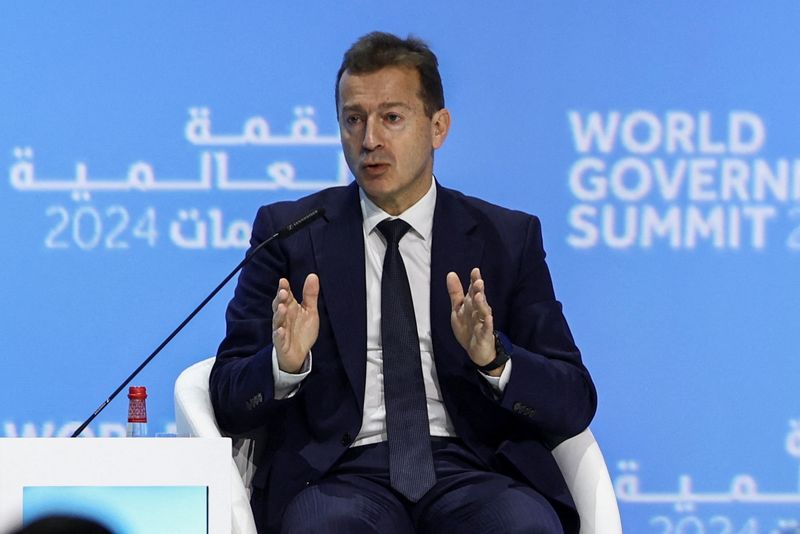By Tim Hepher
BRUSSELS (Reuters) -Airbus CEO Guillaume Faury on Tuesday voiced increasing confidence over engine supplies that have been hampering jet deliveries, telling Reuters that CFM International should be able to supply enough units but it would be "very tight".
A shortfall in supplies from the world's largest engine maker by units sold, co-owned by GE Aerospace and Safran (EPA:SAF), has been partly blamed for sluggish Airbus jet deliveries and helped trigger a cut in annual targets in July.
Airbus faces a hurdle of delivering around 200 jets in the last two months to reach a 2024 goal of "around" 770 jets - a task some analysts say looks increasingly out of reach.
Asked whether he believed CFM would be able to release enough engines to Airbus to support the planemaker's end-year goals, Faury said: "In the short term it is very tight ... I will only know for sure at the end of November".
He added: "It should be ok; I don't know yet. It will be within a few engines - not tens of engines - if any."
CFM had no immediate comment.
The comments by the head of the world's largest planemaker - although carefully calibrated - convey a more relaxed tone over engine supplies since the summer and follow negotiations behind the scenes over allocations, according to industry sources.
Founded 50 years ago, CFM is one of two suppliers for the narrowbody A320neo family, Airbus's best-selling jet, competing with RTX unit Pratt & Whitney. It is also the sole engine supplier for the Boeing (NYSE:BA) 737 MAX.
Like other engine makers, CFM has been having to juggle between competing demands for engines for new jet production and the global repair shops that keep existing planes in service, while also dealing with problems at a key supplier.
The tussle led to visible tensions between Airbus and the industry's largest engine supplier over the summer, when Airbus lowered its 2024 delivery target to "around" 770 jets from 800, citing supply problems at CFM as well as makers of other parts.
In July, Faury said he had been "blind-sided" by CFM.
CONCILIATORY NOTE
But speaking to Reuters on the sidelines of an industry event in Brussels on Tuesday, Faury struck a conciliatory note and said that things had not been made easier by recent U.S. hurricane damage, coming on top of industrial challenges.
"They (CFM) are serving us reasonably well given those circumstances," he said.
Such comments are scrutinised around this time of year to gauge the level of confidence planemakers have in their goals. Analysts caution that supply chains remain unpredictable and could throw up surprises in the supply of other parts.
Airbus delivered 62 jets in October to bring the total in the first 10 months of the year to 559.
Some analysts have warned Airbus could have to cut its guidance again around the end of November if the situation does not improve. Airbus is widely expected to take advantage of flexibility in the wording of its target to justify deliveries as low as 750 without making any formal new downgrade.

Airbus, which is out-producing Boeing as its U.S. rival slowly emerges from an internal crisis, is banking on deliveries of engines as well as other parts like seats and landing gear to pull off another last-minute surge in deliveries this year.
But analysts say it is doing so with a supply chain weakened by the pandemic and a raft of labour and parts shortages.